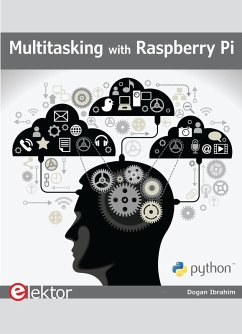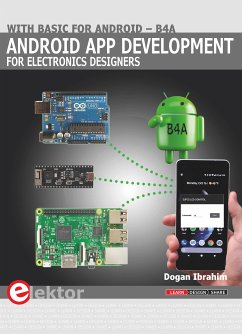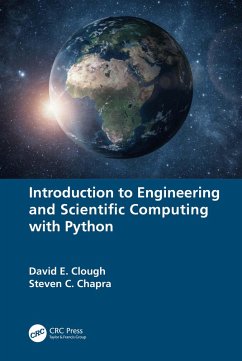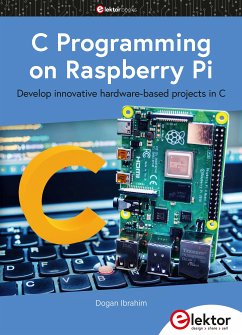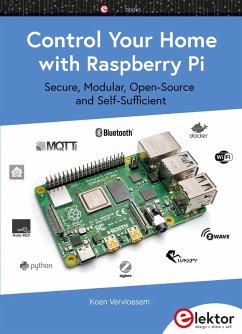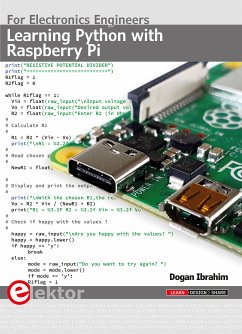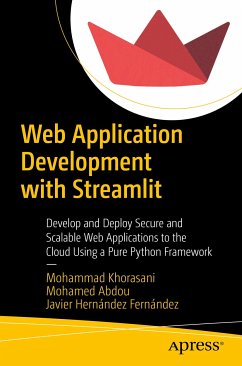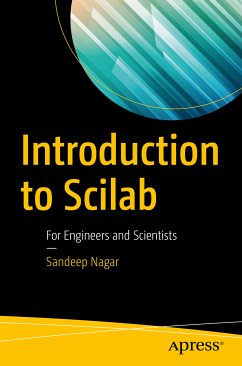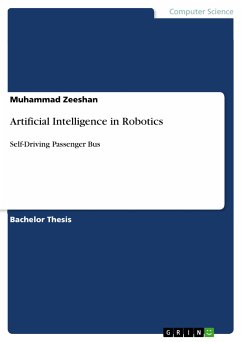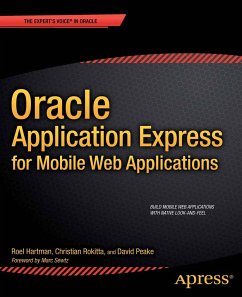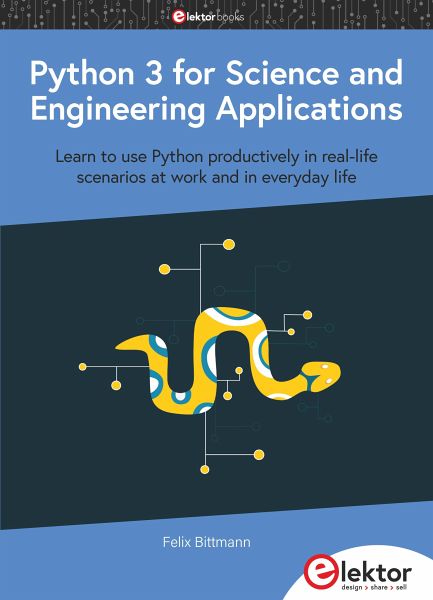
Python 3 for Science and Engineering Applications (eBook, PDF)
Learn to use Python productively in real-life scenarios at work and in everyday life

PAYBACK Punkte
0 °P sammeln!
If you have mastered the basics of Python and are wanting to explore the language in more depth, this book is for you. By means of concrete application examples used in different applications, you are guided on how Python can be used tackle a wide range of problems. Including general ideas and solutions, the specifics of Python and how these can be practically applied are discussed. The book illustrates many aspects of programming including algorithms, recursion, data structures, and helps develop problem-oriented thinking. Python 3 for Science and Engineering Applications includes: >practical...
If you have mastered the basics of Python and are wanting to explore the language in more depth, this book is for you. By means of concrete application examples used in different applications, you are guided on how Python can be used tackle a wide range of problems. Including general ideas and solutions, the specifics of Python and how these can be practically applied are discussed. The book illustrates many aspects of programming including algorithms, recursion, data structures, and helps develop problem-oriented thinking. Python 3 for Science and Engineering Applications includes: >practical and goal-oriented learning >basic Python techniques > modern Python 3.6+ including comprehensions, decorators and generators >complete code available online > more than 40 exercises, solutions documented online >no additional packages or installation required, 100% pure Python Topics cover: >identifying large prime numbers and computing Pi > writing and understanding recursive functions with memorisation >computing in parallel and utilising all system cores >processing text data and encrypting messages >comprehending backtracking and solving Sudokus >analysing and simulating games of chance to develop optimal winning strategies >handling genetic code and generating extremely long palindromes
Dieser Download kann aus rechtlichen Gründen nur mit Rechnungsadresse in A, B, BG, CY, CZ, D, DK, EW, E, FIN, F, GR, H, IRL, I, LT, L, LR, M, NL, PL, P, R, S, SLO, SK ausgeliefert werden.




